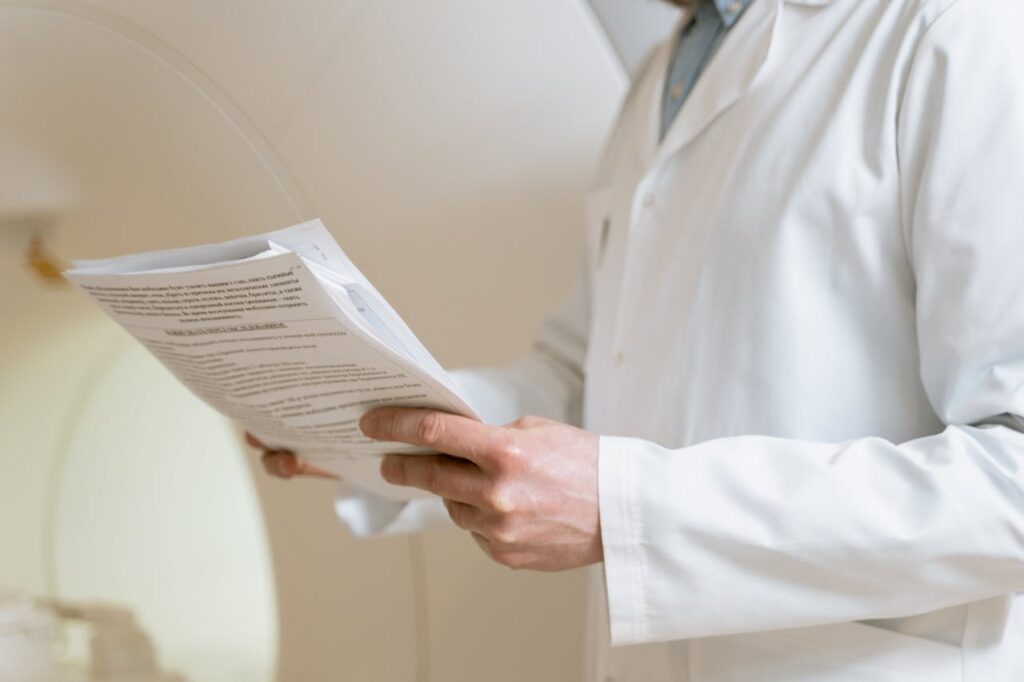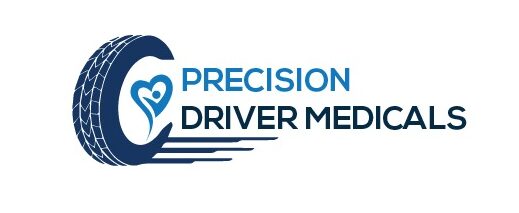Explore the essential vision standards required for driving in UK. Learn about the tests and criteria to ensure driver safety and compliance.
Overview
This blog article is a vital reference to the visual standards necessary for driving in the UK. It discusses the DVLA’s minimal vision criteria, the significance of frequent eye examinations, and how medical issues affect driving ability. It also explains the specialised vision exams for professional drivers and the need to maintain excellent eye health for road safety. The post intends to educate drivers on complying with these criteria and highlights Precision Driver Medical’s services to help drivers satisfy these requirements.
Vision Standards For Driving in the UK
Driving a vehicle requires skill, good health, and perfect vision. In the UK, the Driver and Vehicle Licensing Agency (DVLA) sets strict vision standards to ensure drivers can see well enough to drive safely and effectively.

Understanding DVLA Vision Requirements
The DVLA requires that all drivers must be able to read a standard UK number plate from 20 metres, with or without corrective lenses. This simple test is a crucial part of the driving assessment, ensuring that every driver has a minimum level of eyesight clarity essential for road safety.
The Importance of Regular Eye Tests
Regular eye examinations are not only a legal requirement but a fundamental aspect of maintaining driving eligibility. These exams check more than just your ability to see clearly; they also assess your peripheral vision and ability to perceive colours, which is crucial for recognizing road signs and potential hazards. Being aware of these tests and their importance keeps you informed and in control of your driving eligibility.
Conditions Affecting Driver Vision
Various medical conditions can impair vision, such as cataracts, glaucoma, and diabetic retinopathy. It is vital for drivers who suffer from these conditions to manage them effectively and comply with medical advice to maintain their driving privileges.
Vision Correction and Driving
Wearing glasses or contact lenses while driving is essential for those who need them. The DVLA must be informed of any vision changes affecting driving ability, which might require changing your driving licence terms or additional testing.
Advanced Vision Tests for Professional Drivers
Professional drivers, including those operating HGVs, PCVs, and taxis, may be subjected to more stringent vision tests. These tests are designed to ensure that all commercial drivers meet higher standards of visual acuity to handle the demands of professional driving.

Maintaining Vision Health for Safe Driving
Proactive measures in eye health can prevent the progression of vision impairments that jeopardize driving capabilities. Regular check-ups with an optometrist and following prescribed vision corrections can significantly contribute to driving safety, giving you the confidence that you’re doing everything you can to drive safely.
Impact of Age on Driver Vision
As drivers age, regular vision checks become even more critical. Age-related vision changes, such as presbyopia and age-related macular degeneration, can affect driving ability, making it essential to adjust vision correction and driving habits accordingly.
Ensuring Compliance with Vision Standards
It is critical to stay informed about the DVLA’s vision standards and maintain regular communication with healthcare providers about your driving ability. For drivers who may have concerns about their vision, it’s advisable to undergo an assessment sooner rather than later.
Precision Driver Medicals offers comprehensive vision assessments for drivers, ensuring that private and commercial drivers meet the necessary visual standards set by the DVLA. By choosing our services, you ensure that your vision meets legal standards, helping maintain road safety for everyone.
Driving is a responsibility that requires skill, knowledge, and physical fitness, of which vision plays a crucial part. It’s up to us to ensure that our eyes meet the vision standards the DVLA sets. This is not just about legal compliance but also about personal safety and the safety of others on the road.
 YouTube·Inclusive Driving
YouTube·Inclusive DrivingHere are 10 informative FAQs related to vision standards for driving in the UK
What are the minimum eyesight requirements for driving in the UK?
- In the UK, you must be able to read a standard number plate from 20 metres with or without corrective lenses.
Do I need to inform the DVLA about my vision impairment?
- Yes, you must inform the DVLA if you have any changes in your vision that might affect your ability to drive safely.
How often should I have my eyes tested for driving?
- It’s recommended to have an eye test at least every two years or more frequently if your optometrist advises.
What happens if I fail the vision test at the DVLA?
- If you fail the vision test, your driving licence may be revoked or suspended until you meet the required standards.
Can I drive while wearing glasses or contact lenses?
- Yes, you can drive while wearing glasses or contact lenses, as long as they help you meet the vision standards for driving.
Are there different vision standards for professional drivers?
- Yes, professional drivers may face more stringent vision standards due to the demands of their jobs.
What conditions could disqualify me from driving?
- Conditions like uncontrolled glaucoma, cataracts, or severe diabetic retinopathy can disqualify you from driving if they significantly impair your vision.
Can I reapply for my driving licence after improving my vision?
- Yes, you can reapply for your driving licence once you meet the vision standards required by the DVLA.
Is colour vision important for driving?
- Yes, perceiving colours is essential for recognizing traffic lights and road signs.
What should I do if my vision changes suddenly?
- If your vision changes suddenly, you should see an optometrist immediately and avoid driving until your vision is assessed and declared safe.




